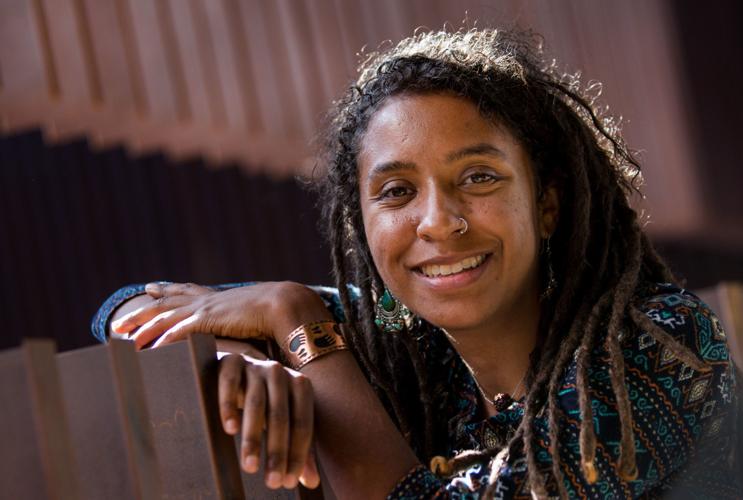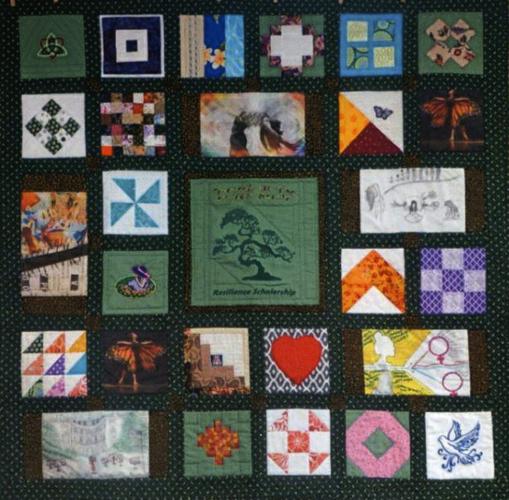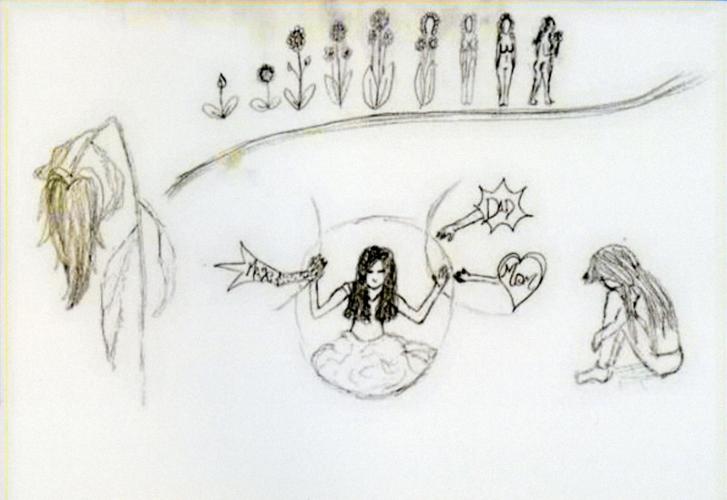A University of Arizona graduate student who survived a sexual assault seven years ago is using her experience to give back to other students at the UA.
The Resilience Project, founded in 2017 by UA graduate student Renee Kargleder, will be launching its second annual scholarship contest on Tuesday, April 2, by asking survivors to create a piece of art that expresses the theme, “The Triumph of the Human Spirit.”
Kargleder, who will be graduating in May with her master’s in education, came to Tucson in July 2012 in the wake of her own sexual assault in her hometown of St. Paul, Minnesota.
She didn’t tell her family about the assault and decided to leave town to get a fresh start. Kargleder put her finger on a map and landed on Tucson. Shortly thereafter, she was on a bus headed to the Old Pueblo.
“The men assaulted me, got me really sick, robbed me and left me broken on so many levels,” Kargleder told the Arizona Daily Star. “I just hopped on a Greyhound bus and decided to start over.”
Kargleder, 28, spent some time in a youth hostel before ending up homeless for several weeks, sleeping on the rooftops of UA buildings. She eventually met her current boyfriend, whom she credits with saving her life.
Kargleder took classes at Pima Community College and the UA and transferred her credits to Lawrence University in Wisconsin, where she graduated with her bachelor’s degree in 2016. She spent the next two years working as a sexual health educator for youth ages 12 to 18, teaching classes on prevention strategies all over Southern Arizona, including Rio Rico, Nogales and the reservation.
“That was really cool, because it was full circle for me right there, being able to give back to youth who might not know about intoxicants, drug-facilitated sexual assaults or what to look out for in terms of STDs,” Kargleder said. “One of the things I wanted to do while doing that was give back financially.”
Kargleder didn’t have a lot of resources following her assault and had to bear the full weight of what happened on her own, she said.
After returning to the UA for her master’s degree, Kargleder approached Michelle Higgins, president of the American Association of University Women’s Tucson branch, and they worked together to create a scholarship fund for UA students that would allow survivors to submit artwork confidentially.
Kargleder said that Higgins, along with UA College of Public Health research specialist — then Ph.D. student — Deanna Lewis, were a grounding force for her getting the Resilience Project off the ground . Currently, the project is made up of a committee of eight members, including Kargleder.
There were five scholarship submissions last year, but Kargleder is hoping for a greater turnout this year. The $500 scholarship has no limits on gender and no GPA requirement — students simply submit their artwork on an index card to the Resilience Project’s email address. Applicants can also submit a four- to five-line poem, should they wish, but applicants won’t be overlooked should they choose not to, Kargleder said.
Last year, in addition to a $500 check, the winner received a quilt made from all the pieces of submitted artwork. This year’s plan includes the same.
“It’s kind of a way to build community for survivors on campus at the UA,” Kargleder said. “It comes from the heart and I hope that it helps as many people as possible.”
Kargleder hopes to make the scholarship available next year to Pima Community College students and college students on the Tohono O’odham Reservation.
ROAD MAP TO HEALING
After launching the scholarship last year, Kargleder was approached by the UA group Women in Optics, who expressed the need for more transparency on campus when it comes to resources for survivors. While many resources exist on and off campus, oftentimes students aren’t sure what they are, where to go or how to navigate their own path.
Kargleder worked with Ph.D. student Emily Finan to create a “road map to healing after sexual assault,” which guides students through the process based on their specific needs, whether it be reporting the incident to authorities or simply seeking support services.
The map includes phone numbers for law enforcement agencies, campus groups and medical resources and is embedded with QR codes to direct students to specific information, including instructions on obtaining an order of protection, a fact sheet on sexual violence and information about health insurance.
“Giving that agency (to make choices) back to the survivor is so key, because when you go through something like that you feel like you’ve lost everything, including control,” Kargleder said. “I didn’t report to anyone, because I didn’t have the support to do that.”
Kargleder has been meeting with the UA’s Title IX director, Ron Wilson, to discuss placing the road map in campus locations. She’s hoping to get it into dorms, fraternities and sorority houses.
Wilson was such a fan of Kargleder’s QR code idea that he’s looking into having QR codes printed on student ID cards, linking directly to Title IX resources at the UA.
“He actually listened, which is really rewarding to know,” Kargleder said. “I think a big thing with survivors is that we feel voiceless, and knowing that someone actually cares and is going to listen to our thoughts is essential.”
The Resilience Project is also hoping to hold student training sessions involving “what should I do?” situations that allow them to walk through the map and learn how to navigate specific situations. The scenarios address issues including what to do following a sexual assault, what to do if the assault involves a professor and issues specific to students in the LGBTQ community.
“The training would allow students to just have a clear navigation of resources for all of the different survivors on campus, because not one size fits all,” she said.
Kargleder has also been working on an online program for survivors that includes access to resources along with specific survivor support.
“A survivor goes through seasons, and these seasons are different checkpoints that if a survivor is cradled through, they can bloom,” Kargleder said. “We’re literally putting our toe in the water on this one, there’s lots of research to still be done.”
For more information about the organization or the scholarship, which closes on May 3, visit resilience-project.com







